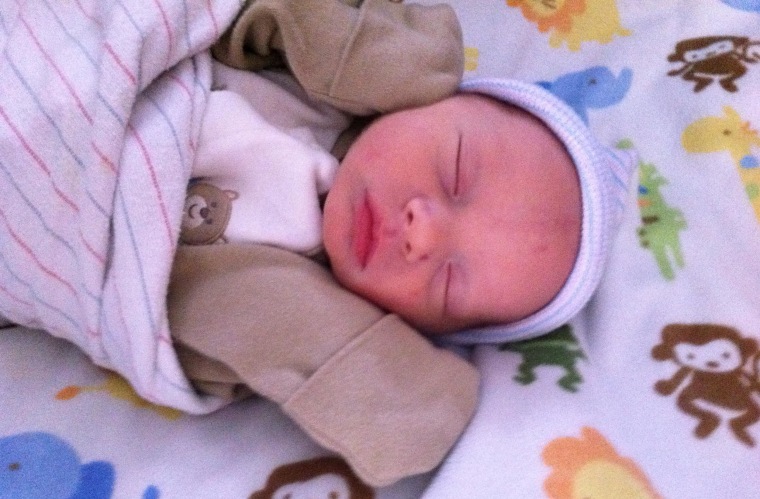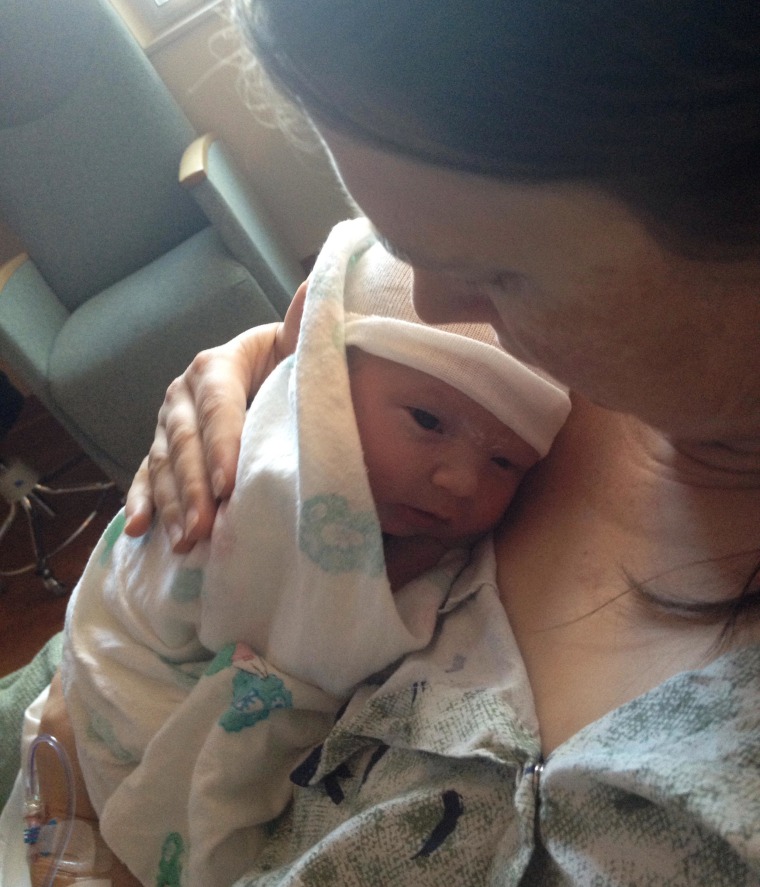A new approach that “freezes” the ovaries for a few months may help some young women have babies after they’ve undergone chemotherapy for cancer, researchers reported on Friday.
The treatment stops the ovaries from producing eggs while the chemotherapy is working, then allows the woman’s fertility to resume. It can be a life-changing approach for young women diagnosed with cancer before they’ve started or finished their families and who risk becoming infertile because of the harsh treatments.
The findings by a team of researchers around the world and presented at a meeting this week of the American Society for Clinical Oncology, startled researchers, who were not sure the experiment would work.
“It was just done by a guess,” said Dr. Richard Schilsky, chief medical officer for ASCO, who was not involved in the study.
“If this is consistent, it could have a profound influence on people,” Schilsky told NBC News. “I think this could have a pretty broad impact.”
Christy Wolford of Fort Collins, Colorado, thought she was going to have to stop at one child when she was diagnosed with triple-negative breast cancer in 2005. She was breastfeeding her newborn daughter, Lauren, when she noticed the lump.
“I gave it a few weeks, but it wasn’t going away,” Wolford said.
Triple-negative breast cancer is the hardest type to treat, and in young women like Wolford — she was 28 at the time — it usually means an aggressive type. That called for aggressive treatment.
“I chose to have a double mastectomy,” Wolford said. “I had six months of chemotherapy, including adriamycin, cyclophosphamide (which is called red death because of its toxicity), 5-fluoruracil.”
“My oncologist said, ‘You have a 90 percent chance of becoming sterile’."
Such strong treatment can damage a woman’s eggs, possibly making her infertile and in some cases sending her into premature menopause.
“My oncologist said, ‘You have a 90 percent chance of becoming sterile’,” Wolford said.
“This is a really important issue for young breast cancer patients,” said Dr. Sharon Giordano, a professor of medicine at MD Anderson Cancer Center in Houston. “They're often very shocked at the time of their diagnosis to find out they have cancer, and then we tell them that we're going to have to give them treatment with chemotherapy that could put them into menopause or make them infertile.”

Zoladex, known generically as goserelin, shuts down the ovaries, in essence hiding them from the chemotherapy drugs, which seek out the most actively dividing cells. This rapid division is what marks cancer, but healthy cells such as hair follicles and the cells lining the intestinal tract also divide quickly and chemo’s attack on them is what causes the nastiest side-effects of treatment.
Wolford was ready for the worst. “We resigned ourselves to our daughter being our only child, and we went through the grieving process, but that doesn’t mean you lose hope. There was always that glimmer of hope.”
What gave Wolford hope was enrolling in a clinical trial to test the idea that yet another drug might help preserve her fertility. She was one of 257 women randomly assigned to either get a regular shot of a drug called Zoladex or not while undergoing chemo.
“I was injected with Zoladex into my abdomen every three weeks,” Wolford said. “It was painful, not easy, but every time I did it, I thought this was for our future.”
Wolford said she and her husband, Albert, had hoped for a big family. “I was thankful for having Lauren, because the cancer probably started two years before I got pregnant, and I solemnly believe she saved my life,” says Wolford.
“But to have those choices of having a child taken away from you, it’s a really hard thing to have to come to grips with in a very short time, to have those decisions made for you.”

Two years later, 12 women who did not get Zoladex, or 11 percent, got pregnant. But 22 who got the drug got pregnant, or 21 percent of the women treated, Dr. Halle Moore of the Cleveland Clinic in Ohio told a meeting of the American Society for Clinical Oncology. So far, 30 babies have been born and eight women are still pregnant, Moore says.
Wolford was in the Zoladex group and went through temporary menopause as the drug shut down her hormones. “I did have full gamut of menopause symptoms, including hot flashes, irritability, hormone swings — classic symptoms,” she said.
"Today I have four children. I had three boys after the chemo."
But it paid off. “Today I have four children. I had three boys after the chemo,” she said.
The treatment seems safe, also, said Moore.
“There had been previously been some concern raised that goserelin might increase the number of miscarriages or complications, but the study found that it did not do so,” she said.
“This will change my practice. I will now offer this drug to my premenopausal patients receiving chemotherapy who are interested in avoiding ovarian failure. The drug is not perfect, but it does put the odds in one’s favor.”
Doctors can start offering Zoladex to women right away because the drug is already approved to treat cancer.
The women in the trial had an average age of 38, and the researchers all chose women whose breast cancer was “hormone-negative,” meaning it wasn’t fueled by estrogen.
Dr. Ann Partridge of the Dana Farber Cancer Institute in Boston, who worked on the study, says about a quarter of U.S. women who are diagnosed with breast cancer haven’t gone through menopause yet.
“We know that women do have babies after chemotherapy, and the majority of young women remain premenopausal,” Partridge said. “The evidence that we do have shows it is safe to have a baby after breast cancer, even in hormone-positive women, in that these women do just as well as those who don’t have babies. There’s no greater risk of recurrence for women who have babies compared to women who do not have babies.”
The other option for women is IVF — removing eggs before chemo, having them fertilized and then frozen for use after cancer treatment is over. But the experts all said this is likely a less expensive and more attractive option for many.
As for Wolford, she’s had more good news.
“At my last appointment after chemotherapy, the word ‘cured’ was used,” she said. “It was a little shocking to me,” she added. “With triple-negative, the highest recurrence rate is within five years, so now that I am nine years out, I feel pretty confident that I am okay,” she added.
“Cancer doesn’t have to define you.”